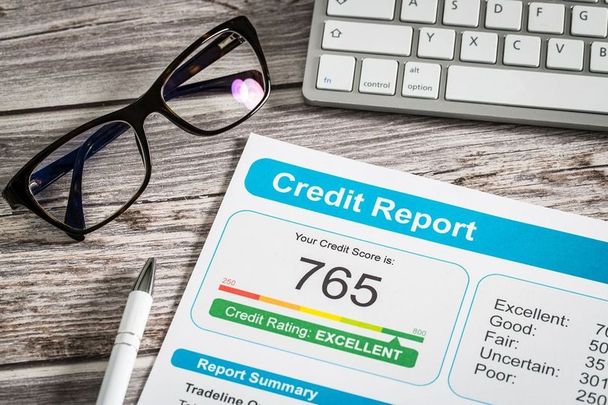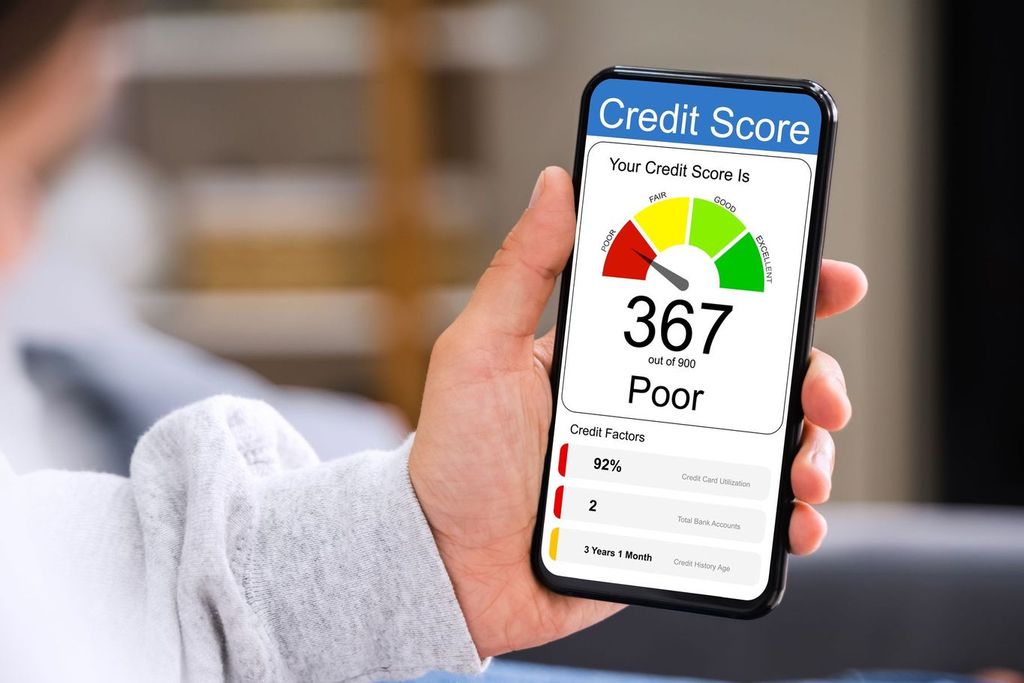If You Have Poor Credit, How Do You Buy A Car?
Owning a car is an expense. But having a car is also a necessity. How to marry the two? Usually with a car loan.
Paying outright for a car usually isn’t an option, especially since the average price of a new car hovers around $38,723, according to credit rating agency Experian. Car buyers often count on an auto loan to make their dream of hitting the open road in a vehicle they’ve bought, rather than rented or leased, a reality.
But car loans don’t necessarily come easy: Your credit score can impact both the cost and accessibility of a loan. Here’s what you need to know to put yourself in the best position to secure a car loan if your credit score isn’t all it should be.

What Exactly Is A Credit Score?
A credit score isn’t made up of just one thing; in fact, it’s a compilation of information and factors that, together, paint a picture of how you manage your accounts, debts, bill payment, and credit. According to the Consumer Financial Protection Bureau, a credit score is a tool that can help predict your ability to pay back a loan and make timely payments. Several agencies employ mathematical formulas that take into account your past financial information to come up with your credit score.
Scoring models include:
- The total amount of your current unpaid debt
- The total number of current loan accounts and how long they’ve been open
- History of paying bills, including mortgages, rent, utilities
- Available credit you’re currently using, and new credit applications
- Whether you’ve filed for bankruptcy, experienced foreclosure, or if any of your debts have been sent to a collection

The Numbers Tell The Difference Between Good And Bad Credit
Credit scores range between 300 (low end) and 850 (high end). In general, someone with a credit score over 700 is typically viewed as a good credit risk, meaning they will most likely be able to manage the debt responsibly and in a timely manner.
Credit scores fall into several categories:
- Super-Prime: 781-800.
- Prime: 661-780
- Nonprime: 601-660
- Subprime: 500-600.
- Deep Subprime: 300-499
Do you fall In the Prime or Super-Prime categories? Most likely you’ll be viewed as a good credit risk and probably will be able to obtain a car loan without much difficulty. Securing a car loan from major lenders usually requires a credit score above 661.
Are you at the lower end of the Prime category? You might not qualify for the best finance rates advertised by captive finance companies, which could cost you more cash. Consumers with credit scores below 740 will pay an increasingly higher rate the lower their credit score.

Securing A Car Loan With Poor Credit
If you’ve checked your credit score and you’re coming in at lower than 550, that could be a financial wake-up call: You may need to turn in a different direction to get financing for your new wheels.

Banks and Credit Unions & Buy Here, Pay Here Financing
Depending on your credit situation, you may end up with a better finance deal if you go through your own current bank or credit union rather than the dealership’s finance department. Talk with your bank or credit union about how much you can finance and loan interest rates. Note that banks and credit unions might allow you to borrow up to 120 percent of the purchase price.
“Buy Here, Pay Here” financing is sub-prime, bad credit financing usually offered by independent used car dealers specializing in vehicles not sold on the average franchised auto dealer lot. In general, these are used cars that may be older, have higher mileage, and don’t come with more than a 30-day warranty. The financing comes directly from the dealership, meaning they float you the money to purchase the vehicle after you’ve provided a significant down payment.
Interest rates offered by Buy Here, Pay Here dealers are usually much more than the rates available for other financing options. According to CreditKarma, the average auto loan from a bank or credit union usually carries a 3.25 to 5.32 percent APR; a loan from a Buy Here, Pay Here dealer averages around 20 percent. Be aware, then, that you could be taking on a costly car payment, owing to that high-interest rate.
With a Buy Here, Pay Here loan, you may be expected to make bi-weekly cash payments at the dealership. Online and automatic payments are usually out of the question. And if you default on the loan? You can expect almost immediate repossession. The NIADA reported that nearly 45% of Buy Here, Pay Here car dealerships use trackers to facilitate vehicle location if repossession proceedings have been initiated.

Finance in Advance & CarGurus
It’s a fact: Simply applying for a loan has a negative impact on your credit score. A “hard inquiry” occurs when you apply for a loan and the potential lender reviews your credit history. According to credit rating agency Equifax, “Hard inquiries serve as a timeline of when you have applied for new credit and may stay on your credit report for two years, although they typically only affect your credit scores for one year.” The good news? If you’re comparing lenders and all of them execute hard inquiries within two weeks, give or take, it should only count as one hard inquiry on your credit.
With Finance in Advance from CarGurus, you can get pre-qualified for a car loan without a hard inquiry. Associated lenders conduct a “soft inquiry” of your credit history, which doesn’t impact your credit score. That generated report is then shared with multiple participating lenders, who will let you know whether you qualify for a loan and how much you can borrow. Participating lenders include Capital One Auto Finance, Global Lending Services, and Westlake Financial.
